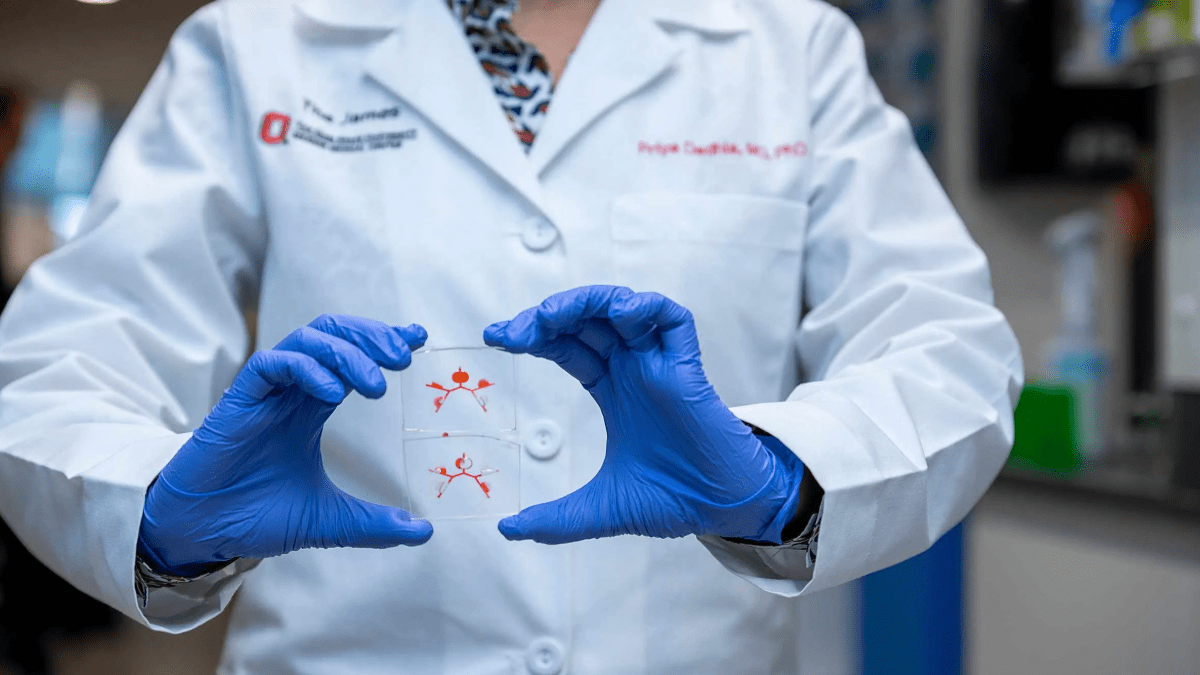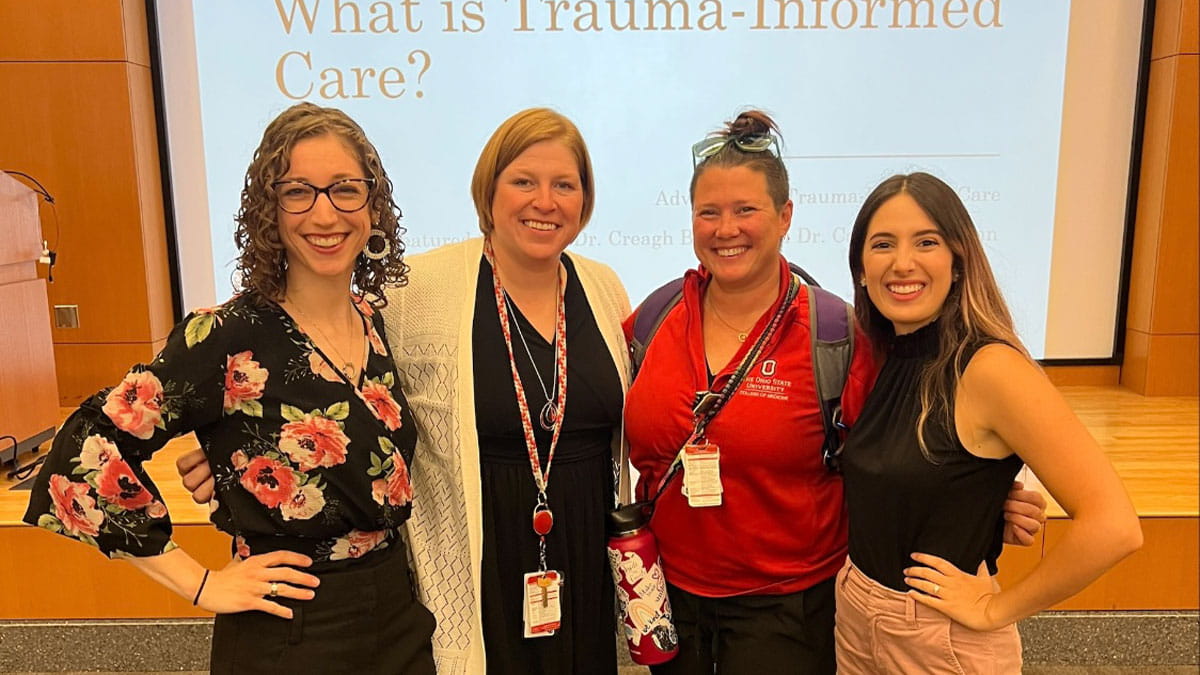ACCELERATE program established with a $1.7M T32 grant for health services research training
A novel Ohio State program designed to prepare the next generation of health services researchers has been established with a significant grant from the Agency for Healthcare Research and Quality (AHRQ).

The T32 Institutional Training Program grant is a $1.7 million allotment awarded to principal investigators (PIs) Ann Scheck McAlearney, ScD, MS; James Burke, MD, MS; and Daniel Jonas, MD, MPH. The award is curated to help support postdoctoral fellows for training to conduct health services research (HSR), specifically aiming to ensure that a “diverse and highly trained workforce is available to assume leadership roles” in that area.
“ACCELERATE: Accelerating HSR at OSU” aims to increase accessibility to high-quality health care through the development of exceptional postdoctoral trainees. The ACCELERATE program will match experienced mentors with HSR trainees to foster a collaborative research community while preparing trainees to effectively address health services issues and increase equity in health care.
“What we’re looking for are trainees from a variety of backgrounds who are passionate about health services research, and we are especially interested in supporting new investigators interested in addressing health care disparities and improving health equity,” says Dr. McAlearney, who co-leads the program with Drs. Burke and Jonas. “We aim to recruit and train these individuals so that they will be prepared to conduct HSR that makes a difference, both advancing health equity and helping the patients and populations we serve.”
The ACCELERATE T32 program is focused on helping scientists develop skills to address disparities in care, improve health equity, increase access to care and improve the quality of care delivered, Dr. McAlearney says.
“A combination of didactic and experiential learning will prepare trainees to address the most pressing issues in health care delivery including using innovative, data-driven approaches to improve and expand the dissemination of health care services. The skills developed through the postdoctoral program will help trainees who aim to become independent health services researchers ready to ask and answer important questions and design and implement interventions that improve health and health care delivery.”
Over the five years of federal support, the grant will support about 15 postdoctoral trainees from various fields.
“In addition to the four slots funded by AHRQ,” Dr. McAlearney says, “the College of Medicine has committed to fund an additional trainee for the first year of the grant to make our inaugural cohort stronger. Grant and College of Medicine funding will provide stipends for trainees as well as a nominal amount of support for trainees to travel to a conference annually to network across the different AHRQ-funded T32 training programs.”
Dr. McAlearney says she looks forward to seeing how the grant helps diversify training and facilitate development of a robust network of HSR scientists dedicated to improving health services and advancing health equity.



